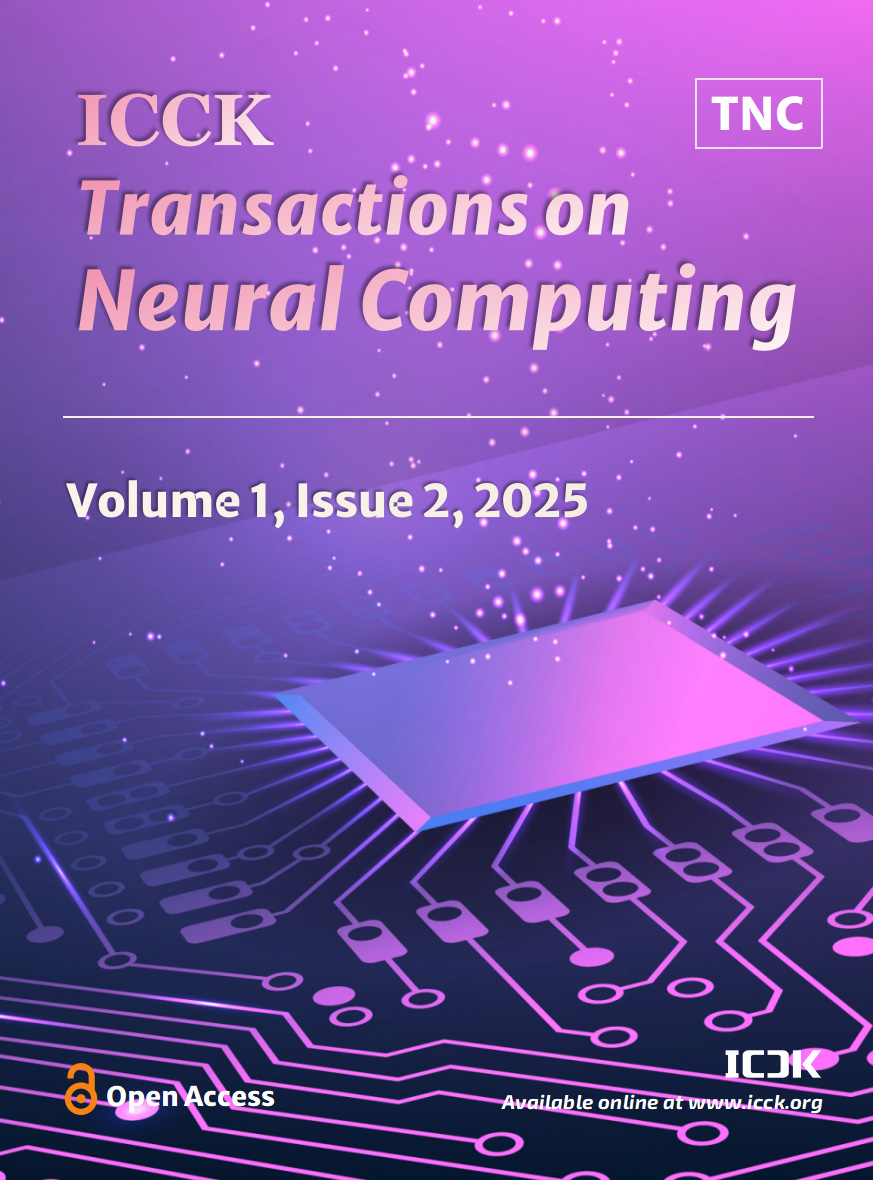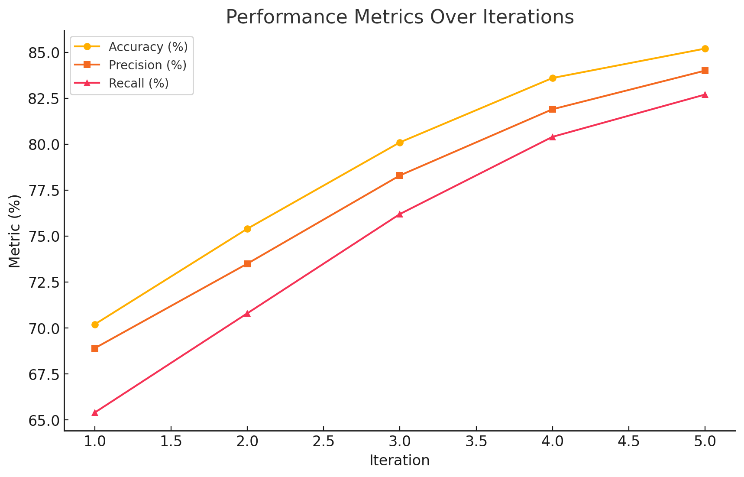Abstract
In recent years, the use of the Internet of Medical Things (IoMT) and electronic health records (EHRs) has created exhaustive sensitive healthcare data. If this data is analyzed in an effective way, it will improve the prediction of diseases, the recovery of patients, and the personalization of medicine. However, the collection of data in a central manner brings with it some serious problems related to privacy, security, and rules. Federated Learning (FL), the machine learning approach that is decentralized, seems to be a solution in which model training is carried out in a collaborative way without sharing any raw data. The application of FL in distributed health data analysis is the subject of this paper, which, however, will mainly focus on its ability to combine data privacy and analytical precision. The key contributions of this paper include offering some insights into FL's implementation in the healthcare industry, discussing its benefits and drawbacks, and providing a review of some state-of-the-art methods concerning data security, communication efficiency, and scalability. Furthermore, examples of disease prediction and health monitoring will be pointed out to show the application of FL in the real world. The results suggest that FL has the potential to fundamentally change the field of health data analysis through the use of a collaborative machine learning framework that is secure, privacy-preserving, and allows sharing among parties. Lastly, some future directions and potential improvements for FL in healthcare have also been set out.
Data Availability Statement
Data will be made available on request.
Funding
This work was supported without any funding.
Conflicts of Interest
Vincent Koc is an employee of Hyperthink Labs, San Francisco, CA, United States.
Ethical Approval and Consent to Participate
Not applicable.
Cite This Article
APA Style
Koc, V. (2025). Federated Neural Learning Architectures for Scalable and Privacy-Preserving Analysis of Distributed Health Data in Healthcare Systems. ICCK Transactions on Neural Computing, 1(2), 108–117. https://doi.org/10.62762/TNC.2025.916035
Publisher's Note
ICCK stays neutral with regard to jurisdictional claims in published maps and institutional affiliations.
Rights and Permissions

Copyright © 2025 by the Author(s). Published by Institute of Central Computation and Knowledge. This article is an open access article distributed under the terms and conditions of the Creative Commons Attribution (CC BY) license (
https://creativecommons.org/licenses/by/4.0/), which permits use, sharing, adaptation, distribution and reproduction in any medium or format, as long as you give appropriate credit to the original author(s) and the source, provide a link to the Creative Commons licence, and indicate if changes were made.


 Submit Manuscript
Edit a Special Issue
Submit Manuscript
Edit a Special Issue

 Copyright © 2025 by the Author(s). Published by Institute of Central Computation and Knowledge. This article is an open access article distributed under the terms and conditions of the Creative Commons Attribution (CC BY) license (https://creativecommons.org/licenses/by/4.0/), which permits use, sharing, adaptation, distribution and reproduction in any medium or format, as long as you give appropriate credit to the original author(s) and the source, provide a link to the Creative Commons licence, and indicate if changes were made.
Copyright © 2025 by the Author(s). Published by Institute of Central Computation and Knowledge. This article is an open access article distributed under the terms and conditions of the Creative Commons Attribution (CC BY) license (https://creativecommons.org/licenses/by/4.0/), which permits use, sharing, adaptation, distribution and reproduction in any medium or format, as long as you give appropriate credit to the original author(s) and the source, provide a link to the Creative Commons licence, and indicate if changes were made. 